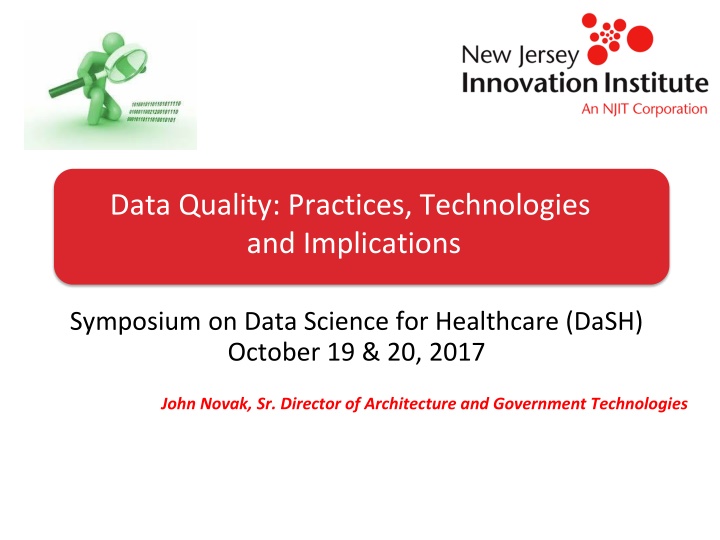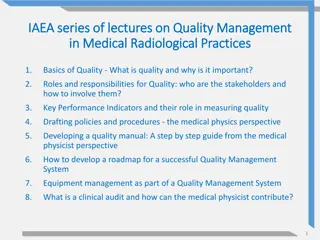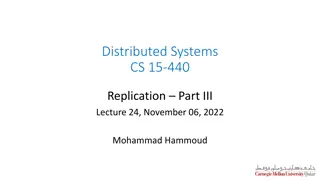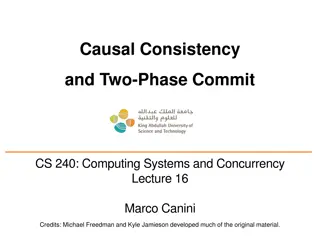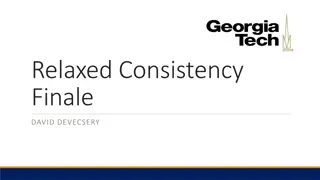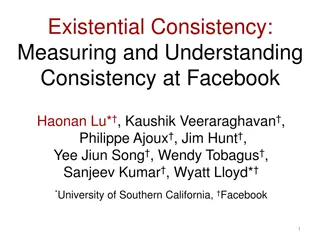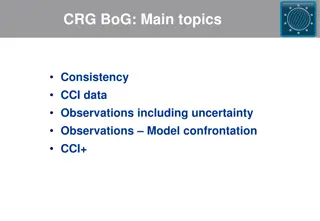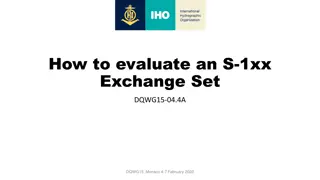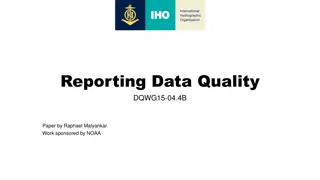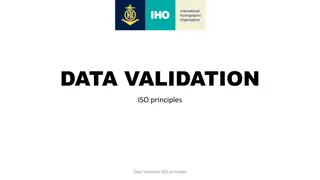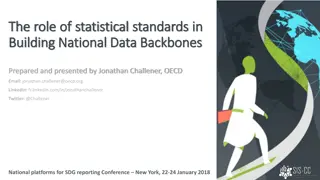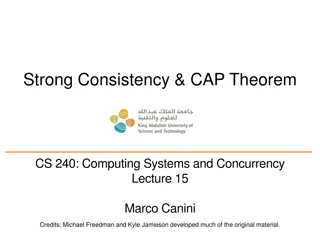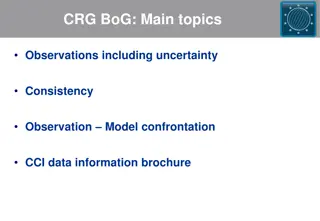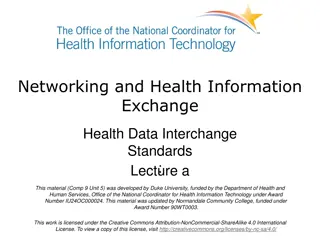Data Quality Challenges in Healthcare: Addressing Standards and Consistency
The symposium on Data Science for Healthcare highlighted challenges such as incomplete demographics, lack of standard requirements, and inconsistent data collection methods. Issues like patient identifier standards, data normalization, and monitoring were also identified as crucial for improving data quality in healthcare.
Download Presentation

Please find below an Image/Link to download the presentation.
The content on the website is provided AS IS for your information and personal use only. It may not be sold, licensed, or shared on other websites without obtaining consent from the author.If you encounter any issues during the download, it is possible that the publisher has removed the file from their server.
You are allowed to download the files provided on this website for personal or commercial use, subject to the condition that they are used lawfully. All files are the property of their respective owners.
The content on the website is provided AS IS for your information and personal use only. It may not be sold, licensed, or shared on other websites without obtaining consent from the author.
E N D
Presentation Transcript
Data Quality: Practices, Technologies and Implications Symposium on Data Science for Healthcare (DaSH) October 19 & 20, 2017 John Novak, Sr. Director of Architecture and Government Technologies
NJII Healthcare iLab 2010 2015: $23 Million - Regional Extension Center, formerly NJ-HITEC (9,000+ Physician and Specialist Network) #1 recognized in the country 2010 Present: Health Information Exchange, Highlander Health Data Network (5-hospital healthcare data exchange network) 2011 Present: CMS Certified Data Registry (300+ Measures covering over 40 specialties for over 4,500 providers) 2012 Present: Population Health Service Provider (Serving 17 DSRIP Hospitals, 5 ACOs, and 500,000 lives) 2015 2017: $5 Million ONC HIE Interoperability Grant as State-Designated Entity NJ Master Person Index (MPI), Healthcare Provider Directory (HPD), Common Key Service (CKS), State Registry Gateway for Immunizations History and Statewide ADT Notification Service and Transitions of Care Use Cases 2015 2019: $50 Million - CMS Practice Transformation Network Awardee (Transform 11,500 providers to achieve performance targets and MIPS / APM scoring and preparedness 2016 2018: $1.5 Million- Medicaid IAPD Onboard and implement ToC for Medicaid Providers onto existing HIEs for the achievement of Meaningful Use
What we Found Incomplete demographics Public Health Registries (not all elements are covered) HIO/IDNs inconsistent or not captured Lack of mapping/normalization Set up and never monitored for quality Stale information Purpose of connections Meaningful Use, was a connection not much about what/how/why
What are the Data Quality Issues in Healthcare? Standards Lack of standard requirements The one standard is there is no standard Consistency What and is collected How is it collected Data exists in a variety of different places Across the continuum of care Data exists in many different formats Structured/Unstructured
Standards Lack of standards Patient identifiers not a set of defined, there are recommendations Public Health Willingness to collect data Conformance Variety of standards HL7 v2.x, v3.0, DICOM, CCDA & FHIR Even with in these standards conformance is a challenge RxNorm, SNOMED, ICD-9 & ICD-10 Mapping across vocabularies
Lack of Consistency Terminology Hemoglobin A1C (lab test) Hemoglobin A1C Hgb A1C, Hb A1c Glycohemoglobin H and H (Hemoglobin and Hematocrit) Common fields Workflows Technology Platforms Maturity of Organizations
Format/Interoperability Data exists in many different formats Discreet data Transcribed data Structured/Unstructured data Formats PDFS, images, video, audio recordings Discrepancies Based on the source systems For Interoperability Standards Consistency Format
Moving Data Sending Org Receiving Org Health Information Network Patient Registration / Movement Even a basic transaction can have its challenges, when scaled it be comes significantly more complex.
Moving the Needle Standards Regulatory levers Organizational compliance Regionalization Validation Human validation and intervention Technical validators
